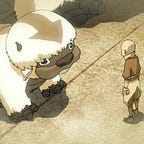The Middle: Examining Celeste’s Climax
[SPOILERS for Celeste]
I started playing Celeste at the beginning of the 2020–2021 school year. Initially, it served as an intentional distraction, a diversion from the stress and focus required from online Zoom learning. However, as I quickly discovered, that approach was somewhat contradictory: playing a precision-oriented platforming game with the intention of taking a break from concentration wasn’t exactly a realistic goal.
I stubbornly kept playing, though, and over time the game began to satisfy a new niche for me: a healthy emotional outlet. A method of rationalizing my problems. Throughout the process, the game deepened my understanding of how to effectively cope with my stress and anxieties, helping me discover what to reject and what to embrace when seeking improvement or change.
In my eyes, Celeste’s story is indicative of the autonomy of a single-player video game. As the player, you (as the protagonist Madeline) are an agent of your own destiny. Your empathetic attachments to the various characters in the game (even the villain) make it that much easier or harder to fulfill its consecutive events.
This sense of self-induced consequences comes to fruition in the game’s climax, when you repeatedly beat down Part Of You (referred to as Badeline by parts of the community) as she tries to explain how she’s only trying to help you. Her defeatist attitude prevents her from even entertaining the idea that you might succeed; from her perspective, she only serves to protect you from even worse physical and emotional harm. Beyond the blunt difficulty of the game, she serves as the only villain, creating a hyper-realistic metaphor that highlights how overcoming one’s personal demons is difficult enough in itself. As the player, I felt a looming feeling of guilt when she pitifully gave up, knowing that it was my actions and inputs that caused her feeling of hopelessness, despite the many times she made it more difficult for me to proceed.
This climactic chapter is exacerbated even more by the reversal of expectation from the previous arc in the story. Before this battle with yourself, you’re repeatedly taught breathing exercises and anxiety relievers by the friends you make in the story, building the presumption that those surface-level inhibitors will be the solutions to your problem. As soon as you’re lured into a false sense of security, the game hits you in the face with a sledgehammer by informing you that the real world isn’t that easy, and you can’t run from your problems forever.
Where Celeste truly shines, though, is in the universality of its message. Part Of You represents the societally enforced pressure to stay in your lane, and to never pursue anything even barely out of reach due to the risk that you might not make it. Beating your dark doppelgänger into silence isn’t what solves your problems, however; as the final chapter makes evident, you must embrace that fear and work with it to reach new heights.
In that sense, Celeste doesn’t fall into the cop-out solution of trying to convince its audience that their anxieties and fear of failure can be vanquished by a strong determination to succeed. It takes cooperation with oneself and acceptance to begin to make any sort of forward progress. The game taught me to channel my adrenaline and to acknowledge that uncertainty: that failing is okay. The important part is making those efforts and taking those risks; without welcoming that ambivalence, you’ll always live in that abyss of the unknown, because you repressed that potential and never considered the possibility of striving for something better.
Celeste taught me that repressing my anxieties and frustrations (school-spurred or not) is an unhealthy and unproductive way to grow and expand. It taught me the danger of battling grief by driving yourself into a self-destructive denial-induced state. It taught me the importance of trusting yourself, and allowing yourself to get knocked down before you can rise up stronger. It taught me that it isn’t necessary to have impressive accomplishments to value yourself and your worth. It taught me the value of setting goals for myself and not giving up if it’s important to me, even if that importance is exclusive to me. It introduced me to a sense of looming personal consequence as an incredibly effective narrative device, whether that be written, theatrical, or otherwise. It introduced me to the beauty of realistic and touching storytelling, in which nothing is needed to provide excess excitement or drama beyond a simple story about a determined protagonist hoping to find herself.
Works Cited:
Celeste. Maddy Makes Games, 2018.
